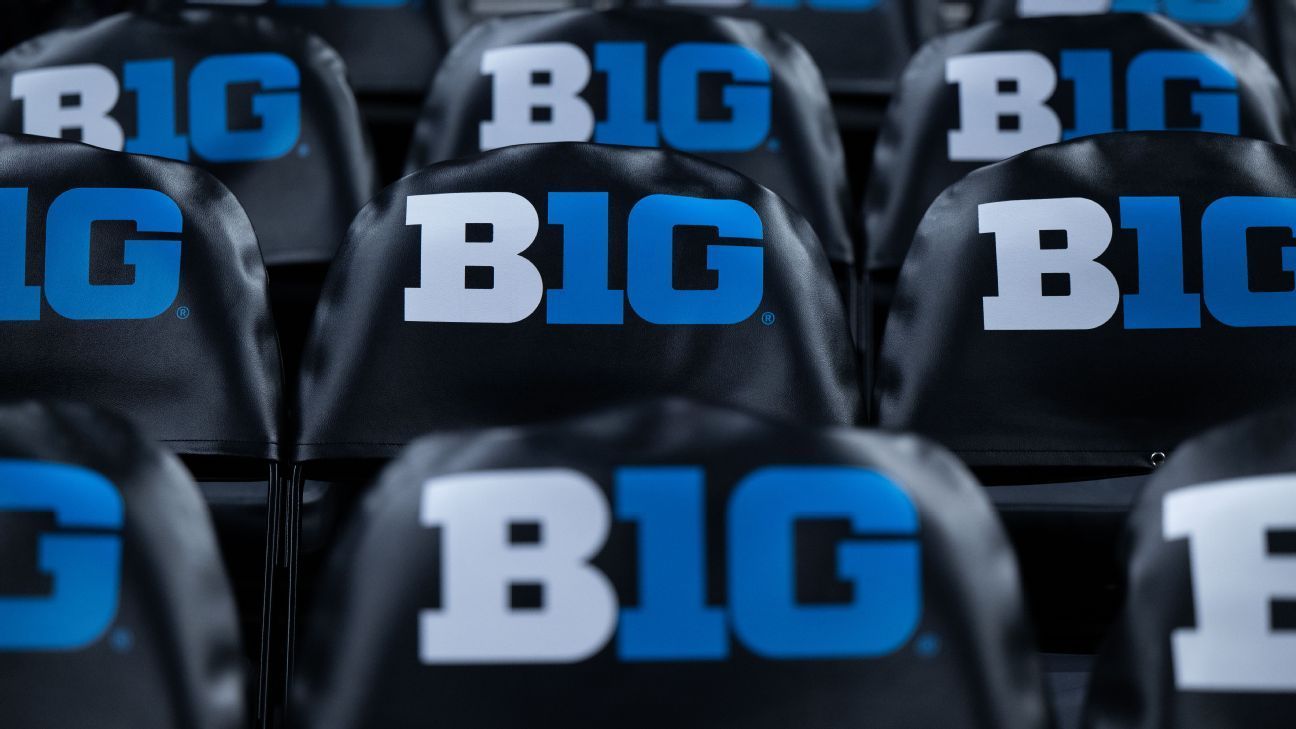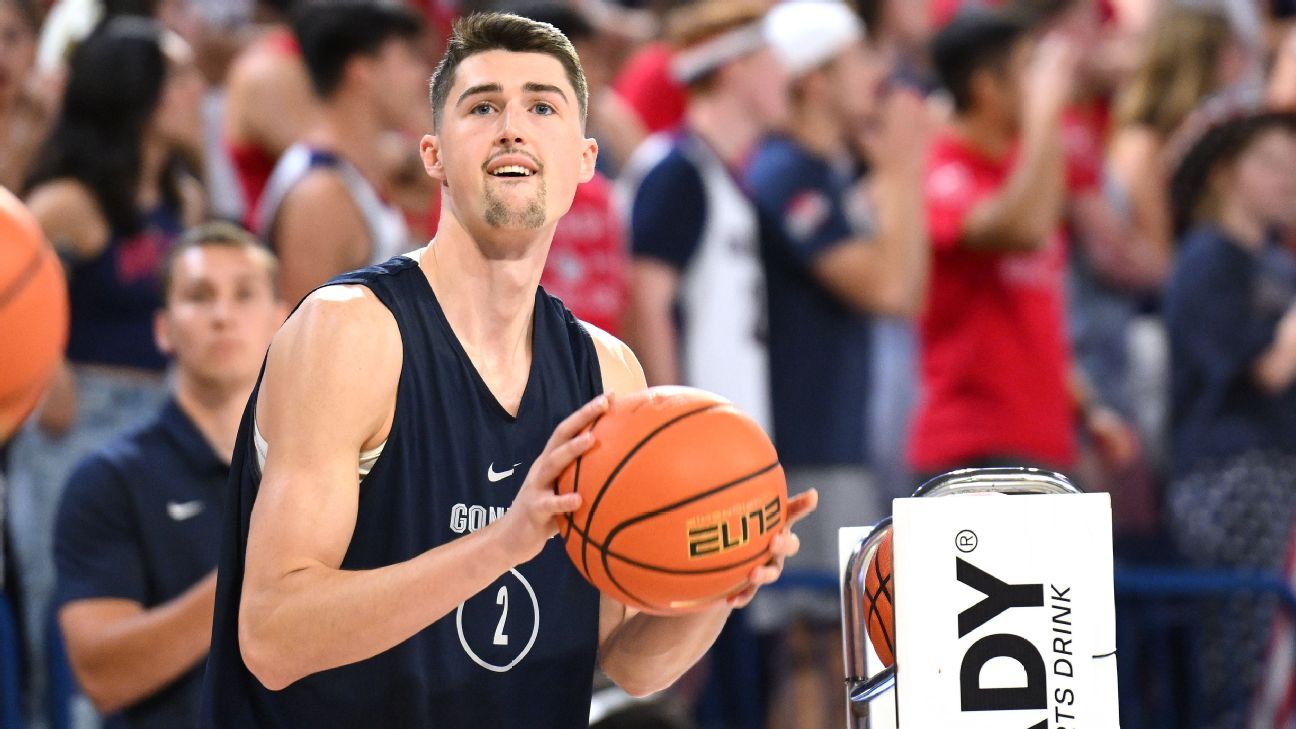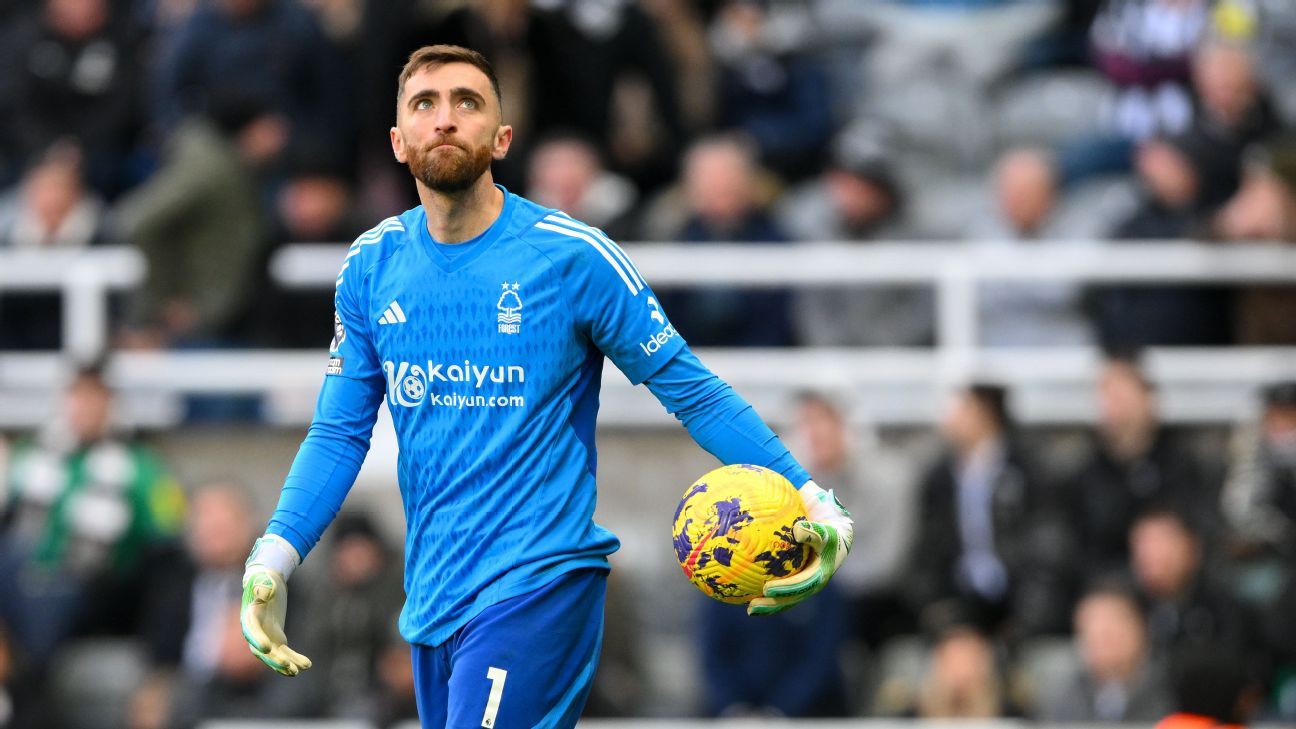Sen. Maria Cantwell, D-Wash., sent a letter to Big Ten presidents on Friday, warning that a move toward private equity could have negative consequences, including impacting schools' tax-exempt status.
“The primary goal of these companies is to make money for the company, which is unlikely to align with their university's academic goals or its obligations as a nonprofit,” Cantwell said.
The Big Ten has been exploring a partnership with private equity firms, and reports say it could be considering a $2 billion investment that would involve placing the sale of its media rights and other assets under a new entity partially owned by the equity investors.
Big Ten commissioner Tony Petitti did not provide specific details at conference basketball media days this week.
“Whether or not we need strategic investment to help us, we will determine,” he said. “The 18 leaders will do it. I think it's no different than looking at the other areas we have to maximize resources. Just another avenue that may or may not be available to us.”
Cantwell, a ranking member of the Senate Commerce Committee whose state has a Big Ten school, said in his letter that he had been told that not all regents and trustees in the conference had been fully informed about the deal.
“It is not clear from my conversations with these regents and trustees whether the Sports-Focused Conference has fully considered the potential impact of the agreement on its university and its overall educational mission,” he wrote.
Her letter comes a day after the senator spoke at a Knight Commission seminar looking at changes occurring in college sports, which settled a long-running lawsuit that now allows schools to pay players for their name, image and likeness.
Cantwell spoke in favor of his recently introduced SAFE Act, which proposes rewriting a 1961 law that would make it legal for conferences to pool their television rights. She was followed at the event by Texas Tech Regent President Cody Campbell, who is proposing changes to the law and criticized the Big Ten's idea of investigating private equity.
“The fact that we're bringing private capital into something that I believe is owned by the American public in college sports is crazy,” Campbell said.
Campbell estimates that pooling television rights could bring an additional $7 billion to schools, a figure he did not support with any data and with which conference commissioners disagree.
“I have never said, publicly or privately, that sharing media rights would increase revenue, nor do I believe it would,” said Greg Sankey of the Southeastern Conference.
Among the problems involved in bundling television rights is that each conference has a variety of agreements with different expiration dates, which would make it difficult to synchronize the agreements and bring them together under one umbrella.
Petitti acknowledged that a private equity move for the Big Ten could create the same challenges.
“If we are going to do something different, we will respect everything we have established in our current agreements,” Petitti said. “There is nothing contemplated that could change our current relations with the media.”
A Michigan regent, Jordan Acker, recently posted on social media that “selling the precious assets of Michigan's public universities would betray our responsibility to students and taxpayers.”
In her letter, Cantwell was direct in describing the risks that a private equity investment could have.
“Your university's media income is not currently subject to tax because it is considered 'substantially related' to its tax-exempt purpose,” he wrote. “However, when a private, for-profit investor has a stake in that revenue, questions arise about whether the revenue loses its connection to the educational purpose of its institution.”












